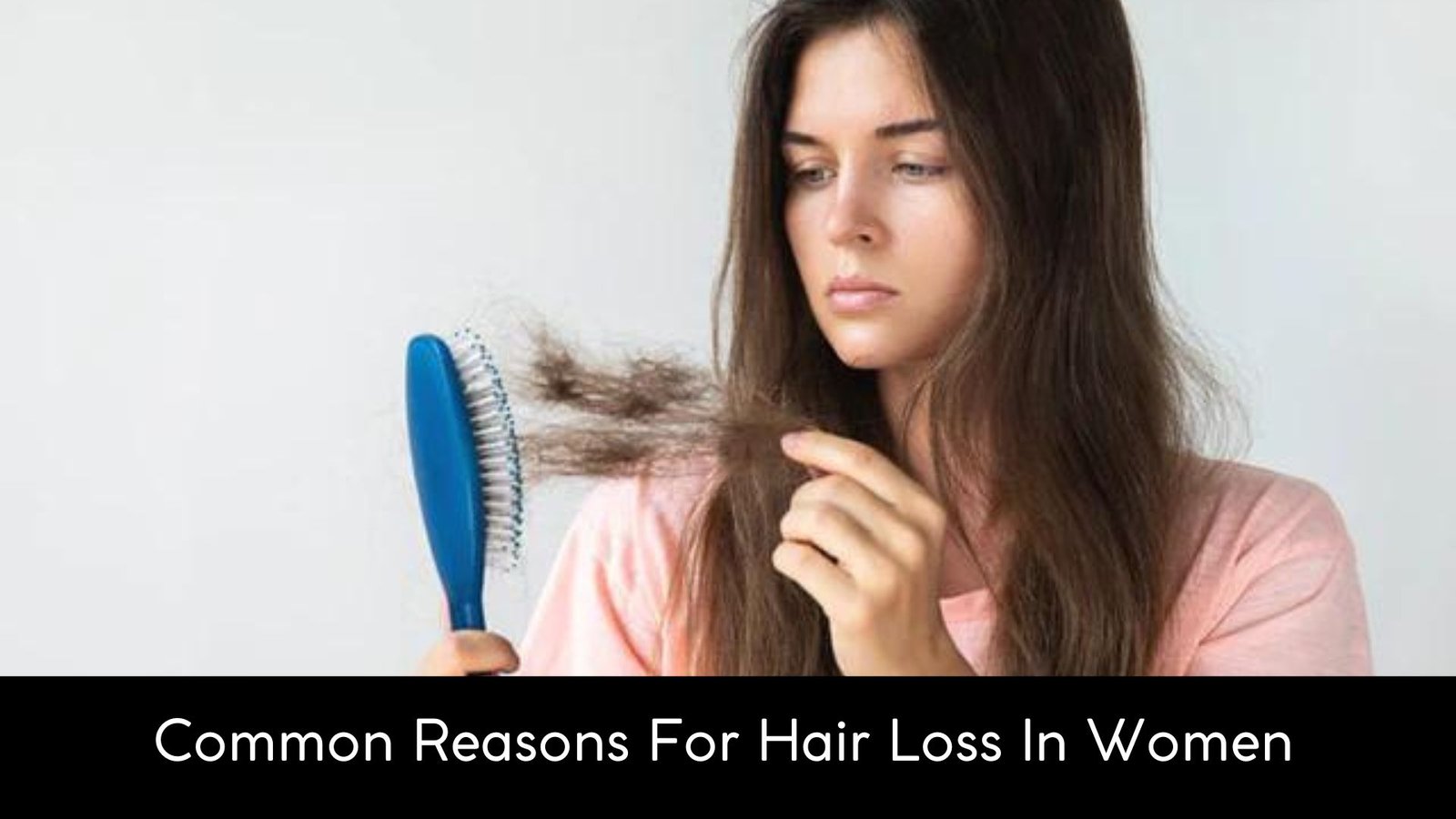A head full of luscious, dark hair is the standard of beauty for Indian women. It looks pretty and adds to the youthfulness of the female form. Thick, black hair is considered a sign of vitality and liveliness.
Unfortunately, not every woman is blessed with dense, dark hair. Genetic issues and lifestyle choices can result in hair loss in women. Apart from this, there is a myriad of health conditions that increase hair fall.
If you are confused about the receding patches of hair on your head, you are in the right place. We will discuss the most common reasons for hair loss in women in the urban way of life. Keep an eye out for your symptoms and lifestyle changes to understand the reason behind your hair fall.
Symptoms of Hair Loss in Women
Watch out for these symptoms of hair loss:
- Thinning of hair on the top of the head– Typically, women’s hair parts are wider than men’s. A receding hairline is a hair loss pattern that older women experience more frequently (frontal fibrosing alopecia).
- Bald spots– Some women have hair loss in the form of round or spotty bald spots on the scalp or brows. Before the hair falls out, your skin may become uncomfortable or unpleasant.
- Loose hair at roots– Hair may become loose as a result of physical or mental trauma. You might lose a few handfuls of hair when brushing, washing, or even with a little tugging. Although transient, this form of hair loss typically results in general hair thinning.
- Hair loss in the entire body– Hair loss can occur all over your body as a result of some diseases and medical procedures, such as chemotherapy for cancer. Usually, the hair grows back.
- Red scales on the scalp– This is an indication of ringworm. It is sometimes accompanied by broken hair, swelling, and leaking.
Now that you know the general hair loss symptoms, let us see the common disorders that cause hair fall.
Androgenetic Alopecia in Women
Androgenetic alopecia which is commonly known as Female and male pattern hair loss is very common in females as well as in Males. People with Androgenetic alopecia often have a family history of baldness or hair thinning in either of their family members.
Symptoms- Present with frontal hairline recession and diffuse thinning of hair on the scalp.
Alopecia Areata
Alopecia areata is slightly different from Androgenetic Alopecia. Alopecia Areata is an auto-immune disorder. In this hair loss condition, the body tries to fight against our own hair follicle considering it’s something foreign material and doesn’t allow hair to grow. This results in the appearance of coin-shaped Bald patches on the scalp.
Symptoms: Sudden appearance of bald patches on the scalp. Hair loss can occur in your brows, eyelashes, and body hair.
Traction Alopecia
Wearing hair in tight buns and ponytails causes traction alopecia. Tight hairstyles pull the hair follicles and create anchor stress.
Symptoms: In such circumstances, a receding hairline is noted.
Nutritional Deficiencies
Hair loss may result from nutritional deficiencies. Minerals and vitamins play a significant role in our nutrition. Therefore, they serve as the foundation for healthy growth and development. Vitamin deficiencies have an impact on hair development.
Symptoms: You will observe that your hair starts falling out in bunches while combing.
Menopause
The level of estrogen and progesterone is low after menopause. It can cause hair loss in women of old age.
Symptoms: You may experience thinning of hair and balding after menopause.
Polycystic Ovarian Syndrome
PCOS is a global female health problem. Hormonal imbalances in the body cause it. Increased androgens and testosterone levels result in irregular menstruation periods, hair thinning, weight gain, and acne.
Symptoms: You will observe gradual hair fall if your PCOS persists without treatment.
Anagen effluvium
The human body reacts differently to each medicine. Some drugs may cause hair loss. Chemotherapy treatments for cancer damage hair follicles. However, the hair usually grows back after the cancer is gone.
Symptoms: Your hair will fall out in bunches while combing and showering.
Telogen effluvium
This disorder results from stress-related hair loss. Some of the possible causes of telogen effluvium include childbirth and emotional stress. Childbirth hair loss is a hormonal issue as the estrogen levels come back to normal.
Symptoms: You may see excessive hair fall while combing and showering.
Scalp Infections
Fungal and bacterial infections of the scalp can cause hair loss in women. Scalp diseases such as ringworm, dandruff, seborrheic dermatitis, scalp folliculitis, and psoriasis can irritate the hair root, resulting in hair shedding.
Symptoms: You will see red scaly patches on your scale. These have no or very few hair strands. Moreover, they can be painful.
Hair loss is a depressing turn of events for any woman. However, with proper treatment, hair loss can be controlled and disguised. We recommend taking proper diet and exercise to prevent going to the dermatologist.
Treat Your Hair Loss With Eva Skin Clinic
We are a dedicated team of proficient dermatologists that solve all hair loss issues. If you are undergoing any hair problems, visit us to get back your beautiful, luscious hair.




